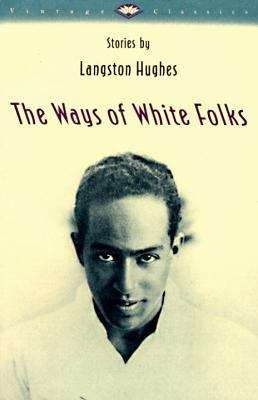The Ways of White Folks: Stories
By:
Sign Up Now!
Already a Member? Log In
You must be logged into Bookshare to access this title.
Learn about membership options,
or view our freely available titles.
- Synopsis
- In these acrid and poignant stories, Hughes depicted black people colliding--sometimes humorously, more often tragically--with whites in the 1920s and '30s.
- Copyright:
- 1962
Book Details
- Book Quality:
- Excellent
- Book Size:
- 258 Pages
- ISBN-13:
- 9780679728177
- Publisher:
- Knopf Doubleday Publishing Group
- Date of Addition:
- 05/15/10
- Copyrighted By:
- Langston Hughes
- Adult content:
- No
- Language:
- English
- Has Image Descriptions:
- No
- Categories:
- History, Poetry, Literature and Fiction
- Submitted By:
- Liz Halperin
- Proofread By:
- Liz Halperin
- Usage Restrictions:
- This is a copyrighted book.
Reviews
5 out of 5
By Liz Halperin on May 16, 2010
Langston Hughes, a prolific writer and multiple-award winner of various forms of literature, lived from 1902-1967. He experienced the place of black people shifting in America. These short stories encompass the time before WWI. The title explains why Hughes writes most of these stories from the white people’s perspective of the blacks. Given the era when these stories were written, the labels used are Colored and Negro, and Nigger. “Father and Son” takes place on a cotton plantation, about the white master, his colored mistress and their children. It is one of the few stories with a true “ending”: the reader doesn’t have much cause to wonder what follows in the characters’’ lives. “Poor Little Black Fellow” tells of a white couple who raise a colored boy after his parents (their servants) die. After all, keeping “it” is their Christian duty. They are very condescending (normal at the time) but as he becomes a young man, the boy’s spunk and self-pride emerge and he moves to his own new culture. “The Blues I’m Playing” followed this theme as a wealthy white woman who takes on artistic young protégées, has her first black one, a female pianist. But in the end, the girl returns to her culture, leaving the benefactor angry and confused. Some of Hughes’ story endings don’t have a tidy conclusion but just stop. The end of “Little Dog” left me puzzled, of “Berry”, hurting. The story “Passing” is especially painful. In 6 short pages, we learn about a young man who passes for white, with his mother’s support, but all that they lose in the process. Langston Hughes is considered by many to be a classic author. To me, “classic” has often been equated with “boring.” Not Hughes and especially not this collection. In one short book, the reader may touch a bygone era (which is still partly evident) and stories that reach to the soul. “The Ways of White Folks” is definitely a keeper and to be reread periodically.
